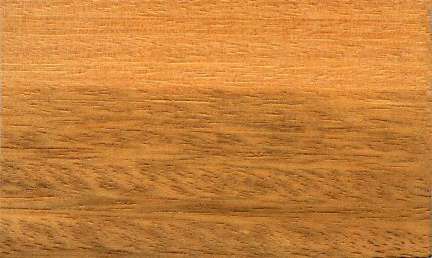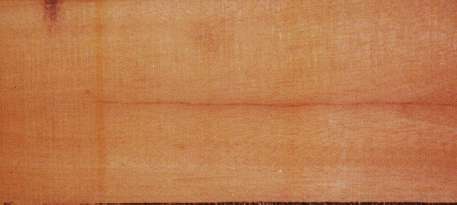 
rum (Caryocar glab)
Family: Caryocaraceae
Common names: Agougagui, Almendro, Almendro de bajo, Almendron, Aquia-rana, Batsonari, Batsouari, Biqui, Butter nut, Cagui, Chawari, Cola bat's souari, Gladde sopp-ordoe sarawi, Huevo de burro, Jigua, Kassagnan, Koorbo, Piquia, Piquia bravo, Piquia da terra firme, Piquia roxo, Piquiarana, Piquiarana da terra, Piquiarana vermelha, Saouari, Sawari, Sawarie, Sopu oedoe, Souari nut
Distributed in: Brazil, Colombia, French Guiana, Guyana, Peru, Suriname (Central America, Latin America)
Distribution overview: Primary humid forests of northern South America, on well-drained soils.
Common uses: Axles, Barge fenders, Beams, Boat building, Boat building: framing, Boxes and crates, Building construction, Cabin construction, Cabinetmaking, Canoes, Chairs, Chests, Concealed parts (Furniture), Concrete formwork, Construction, Crossties, Decks, Desks, Dining-room furniture, Docks, Dockwork, Domestic flooring, Dowell pins, Dowells, Drawer sides, Factory construction, Fine furniture, Floor lamps, Flooring, Form work, Foundation posts, Framing, Furniture , Furniture components, Furniture squares or stock, Furniture, Harbor work, Hatracks, Heavy construction, Joinery, Joists, Kitchen cabinets, Lifeboats, Light construction, Living-room suites, Marine construction, Naval architecture, Office furniture, Railroad ties, Wheels
Product sources: The ITTO reports that timber from produced frequently but export is rather low.
Environment profile: Status unknown in many of its growth areas
Tree size: Tree height is 30-40 m
Colors: the heart isYellow, Yellowish tanand the sapwoodWhite to yellow, Yellow.The grain isStraight, the textureMediumand the lusterSlightly lustrous
Natural durability: Susceptible to insect attack, Very durable
Odor: Seasoned wood has no characteristic odor or taste
LightInduced Color Change: Darker
Kiln Schedules: Kiln Drying Rate (in days) is fairly rapid
Kiln Drying Rate: Naturally dries slowly
Drying Defects: Distortion (twist/warp) is likely, Splitting
Ease of Drying: Slowly
Tree Identification: Bole/stem form is straight
Comments: General finishing qualities are rated as good General finishing qualities are rated as satisfactory
Blunting Effect: Severe effect
Boring: Fairly difficult to very difficult
Cutting Resistance: Moderate to fairly difficult to saw
Gluing: Use special attention for best results
Mortising: Fairly Easy to Very Easy
Moulding: Very Good to Excellent
Movement in Service: Very Good to Excellent
Nailing: Holds nails well, Pre-Boring Recommended
Planing: Very Good to Excellent
Resistance to Impregnation: Wood very resistant to preservative treatment
Response to hand tools: Moderate working qualities
Routing recessing: Fairly Easy to Very Easy
Sanding: Very Good to Excellent Results
Veneering qualities: Suitable for peeling, Suitable for peeling
Screwing: Easy to screw
; Turning: Very Good to Excellent Results
Polishing: Fair to Good; Staining: Poor to Very Poor; Varnishing: Satisfactory
;
- Numerical data Metric
- Numerical data English
- Strength properties
- References
 |
 |
 |
 |
| Item |
Green |
Dry |
Metric |
| Specific Gravity |
0,65 |
|
|
| Density |
|
833 |
kg/m3 |
| Bending Strength |
949 |
1366 |
kg/cm2 |
| Crushing Strength |
468 |
652 |
kg/cm2 |
| Hardness |
|
696 |
kg |
| Impact Strength |
|
|
cm |
| Shearing Strength |
|
120 |
kg/cm2 |
| Stiffness |
134 |
157 |
1000 kg/cm2 |
| Tangential Shrinkage |
8 |
|
% |
| Radial Shrinkage |
5 |
|
% |
| Weight |
833 |
641 |
kg/m3 |
| Maximum Load |
|
|
cm-kg/cm3 |
| Toughness |
|
|
cm-kg |
| Static Bending |
|
|
kg/cm2 |
|
 |  |  |  | | Item | Green | Dry | English | | Bending Strength | 13499 | 19440 | psi | | Density | | 52 | lbs/ft3 | | Hardness | | 1536 | lbs | | Maximum Crushing Strength | 6665 | 9279 | psi | | Shearing Strength | | 1712 | psi | | Stiffness | 1913 | 2236 | 1000 psi | | Specific Gravity | 0.65 | | | | Weight | 52 | 40 | lbs/ft3 | | Radial Shrinkage | 5 | | % | | Tangential Shrinkage | 8 | | % | | Volumetric Shrinkage | 13 | | % | |
Density (dry weight) = 46-52 lbs/cu. ft.
Bending strength (MOR) = high
Max. crushing strength = high
Density (dry weight) = 53-60 lbs/cu. ft.
Shrinkage, Tangential = large
Modulus of Elasticity (stiffness) = high
Bending strength (MOR) = very high
Shrinkage, Radial = large
Shearing strength (parallel to grain) = low
Modulus of Elasticity (stiffness) = medium
Bending strength (MOR) = medium
Shrinkage, Tangential = moderate
Shrinkage, Tangential = fairly large
Shrinkage, Radial = small
Shrinkage, Radial = moderate
Shrinkage, Radial = fairly large
Shearing strength (parallel to grain) = very low
Shearing strength (parallel to grain) = high
Resists denting and marring
Heavy
Hardness (side grain) = soft
Hardness (side grain) = medium
Density (dry weight) = 61-67 lbs/cu. ft.
Density (dry weight) = 38-45 lbs/cu. ft.
Compression strength (parallel to grain) = high
Bending strength qualities of this species in the air-dry condition is very high, far superior to those of Mahogany. Compression strength parallel to grain in the air-dry condition is high. Teak, White oak, and Hard maple have high crushing strength. It is hard - harder than Teak, and does not marr or dent easily. The weight is very high. The wood is very dense
Bena, P.,1960,Essences Forestieres de Guyane,Bureau Agricole et Forestier Guyanais GuyanaBois et Forets des Tropiques,1984,Chawari - Caryocar glabrum pers,Bois et Forets des Tropiques Vol. 203 p.48Bois et Forets des Tropiques,1992,Chawari - Caryocar glabrum Pers,Bois et Forets des Tropiques Vol. 231 pp.61-64Chichignoud, M., G. Deon, P. Detienne, B. Parant and P. Vantomme.1990.Tropical Timber Atlas of Latin America.International Tropical Timber Organization (ITTO, Centre Technique Forestier Tropical, Division of CIRAD, 45 bis Avenue de la Belle Gabrielle, Nogent-sur-Marne, CEDEX, France.Chudnoff, M.,1984,Tropical Timbers of the World,U.S.A. Department of Agriculture, Forest Service, Forest Products,Laboratory, Madison.Erfurth, T., Rusche, H.,1976,The Marketing of Tropical Wood B. Wood Species from S. American Tropical,Moist Forests,F.A.O. Forestry DepartmentLoureiro, A.A., Freitas da Silva, M.,1968,Catalogo das Madeiras da Amazonia (2 vols,Min. do Ultramar Belem BrasilSallenave, P.,1971,Proprietes Physiques et Mecaniques des Bois Tropicaux (Deuxieme,Supplement,C.T.F.T.Takahashi, A.,1975,Compilation of data on the Mechanical Properties of Foreign Woods (Part 2,Central and South America,Shimane University, Japan, Research Report on Foreign Wood No.4Williams, L.1936. Woods of Northeastern Peru.Field Museum of Natural History, Botanical Series, Volume XV, Publication 377, Chicago.
|









